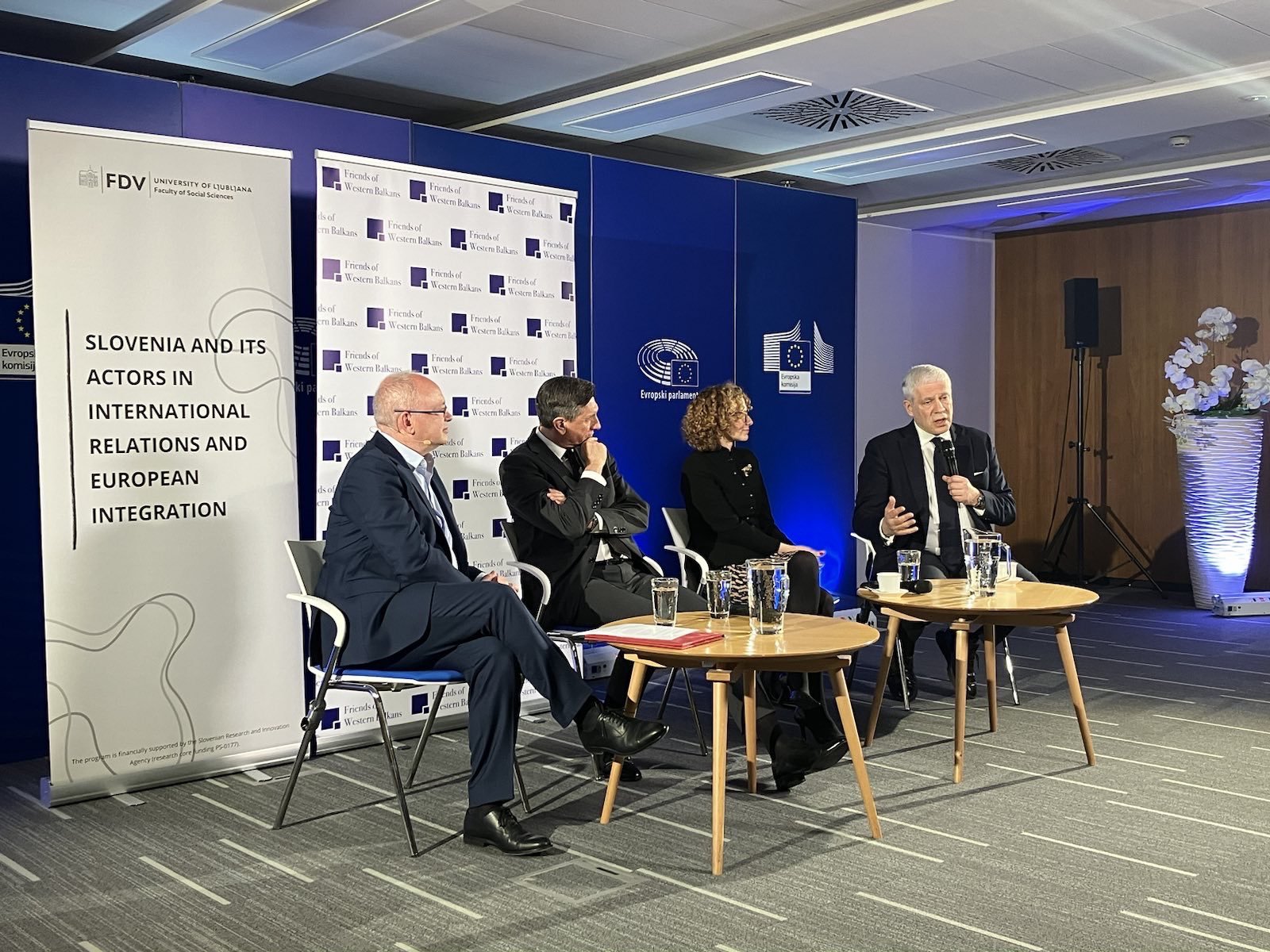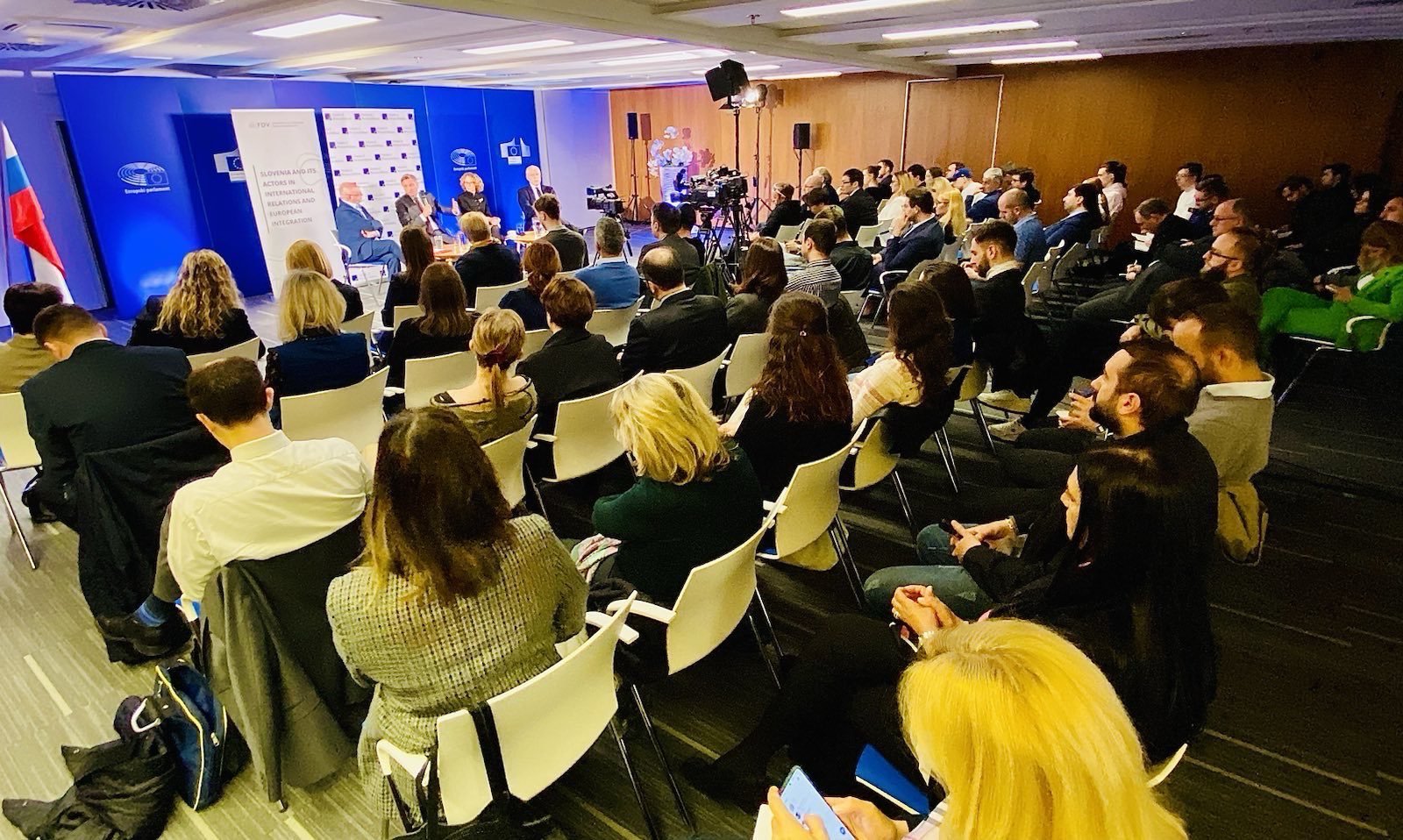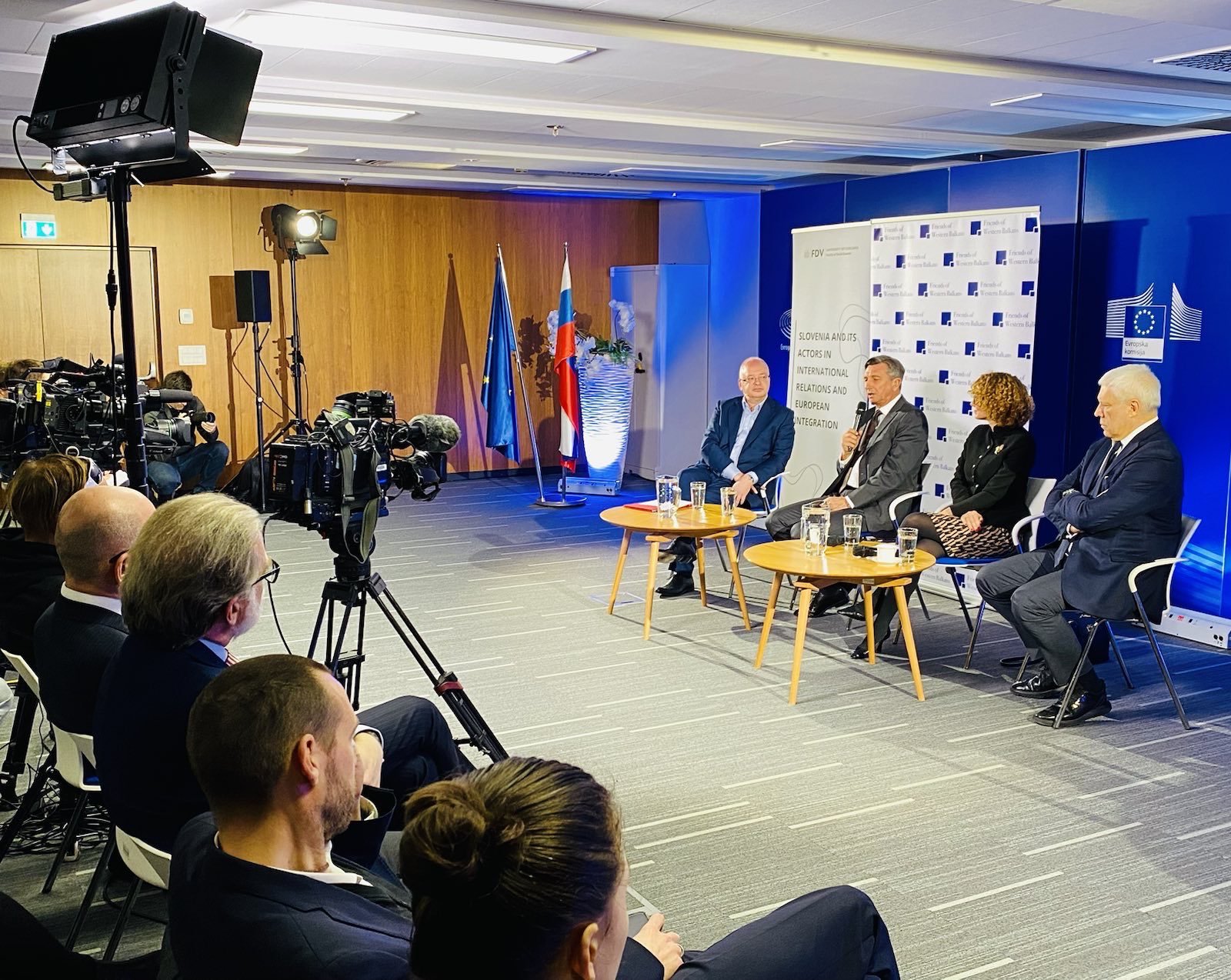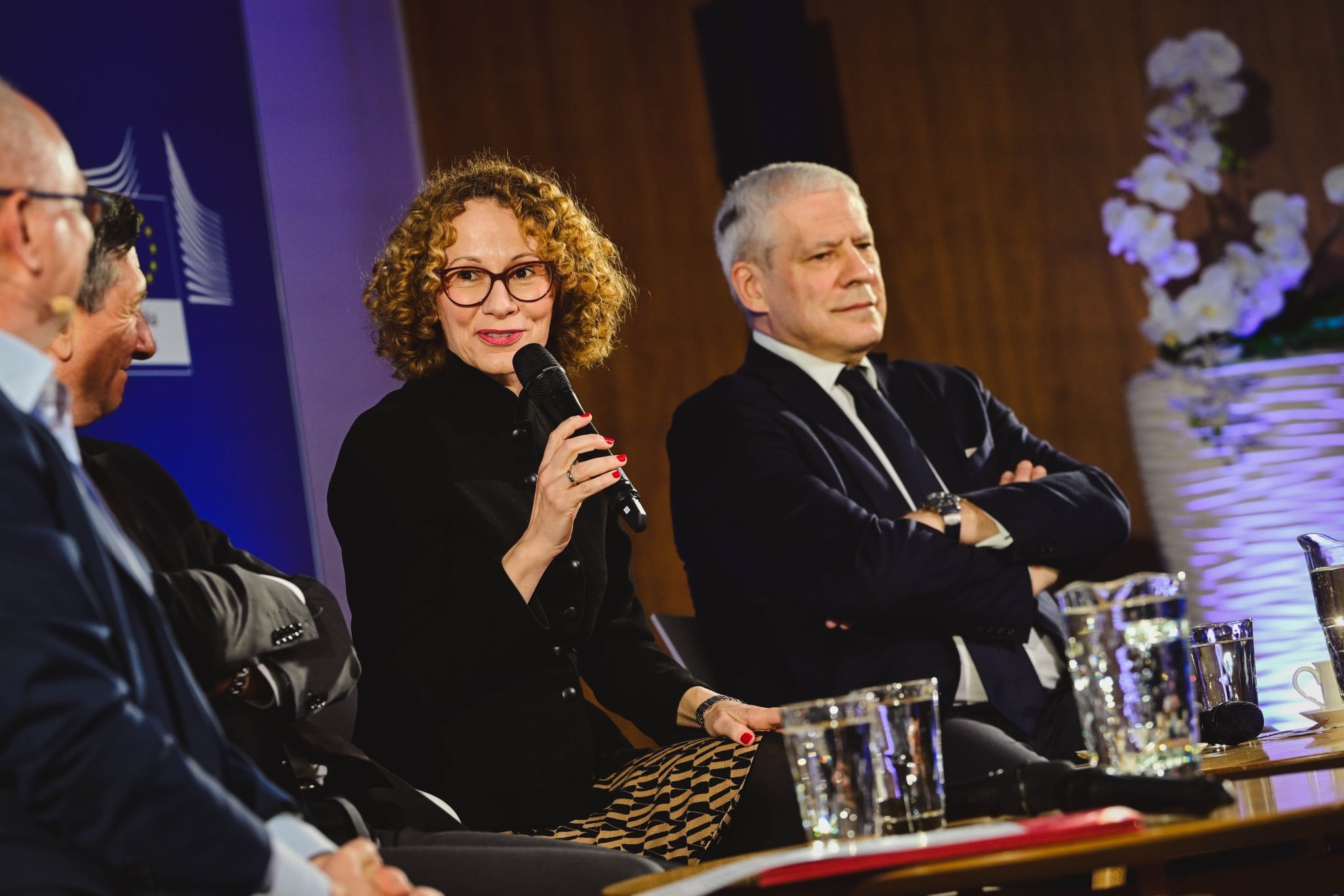EU and the Western Balkans: 20 Years after the Big Bang Enlargement
Prijatelji Zahodnega Balkana, Predstavništvo Evropske komisije v Sloveniji in Center za mednarodne odnose Univerze v Ljubljani – Fakulteta za družbene vede so 18. marca 2024 organizirali okroglo mizo z naslovom “EU in Zahodni Balkan: 20 let po veliki širitvi” v partnerstvu z Evropsko komisijo, Predstavništvom v Sloveniji in Prijatelji Zahodnega Balkana. Dogodek je pritegnil več kot 80 udeležencev, vključno z oblikovalci politik, diplomati, akademiki, novinarji in študenti.
B. Pahor: Res je zdaj čas, da oboji naredimo, kar je potrebno - EU mora svoj ustroj in delovanje pripraviti na novo širitev, države regije pa morajo tudi narediti svojo domačo nalogo. Srbija je pri tem najbolj pomembna.
B. Tadić: Težko odgovorim na vprašanji, česa si želi in kam je namenjena Srbija. Sedanji predsednik republike verjetno ne misli enako kor jaz in tudi javno mnenje danes kaže 38% podpore EU, zvezi NATO pa le 6%.
R. Šekerinska: Pred 20 leti smo si predstavljali, da bodo doslej že vse države Zahodnega Balkana članice EU. Po letih razočaranja je zdaj med ljudmi v regiji končno spet čutiti nekaj optimizma. Ta trenutek je treba izkoristiti.
Govorci na okrogli mizi Borut Pahor (ustanovitelj in direktor FOWB ter nekdanji predsednik), Radmila Šekerinska (ministrica za obrambo Severne Makedonije med 2017 in 2022) in Boris Tadić (predsednik Republike Srbije med 2004 in 2012) so izpostavili pomen večjega medsebojnega razumevanja in spoštovanja ter drznosti pri (skupnem!) iskanju inovativnih rešitev za vključevanje držav Zahodnega Balkana v Evropsko unijo, kar je pomembno za varnost in blaginjo tako države Zahodnega Balkana kot Evropske unije.
On 18 March 2024, Friends of Western Balkans, European Commission - Representation in Slovenia and the Centre of International Relations at the University of Ljubljana - Faculty of Social Sciences, organised a round table titled 'EU and the Western Balkans: 20 Years after the Big Bang Enlargement' in partnership with the European Commission, Representation in Slovenia, and the Friends of Western Balkans. The event attracted more than 80 participants, including policy makers, diplomats, academics, journalists and students.
B. Pahor: It is indeed time for both of us to do what is necessary - the EU must prepare its structure and operations for the new enlargement, and the countries of the region must also do their homework. Serbia is the most important in this regard.
B. Tadić: It is difficult for me to answer the questions about what Serbia wants and where it is headed. The current president of the republic probably does not think the same way as I do, and public opinion today also shows 38% support for the EU, and only 6% for NATO.
R. Šekerinska: 20 years ago, we imagined that by now all the countries of the Western Balkans would be members of the EU. After years of disappointment, there is now finally some optimism among the people of the region. This moment must be seized.
Speakers at the round table, Borut Pahor (Founder and director of FOWB and Former President), Radmila Šekerinska (Minister of Defence of North Macedonia between 2017 and 2022), and Boris Tadić (President of the Republic of Serbia between 2004 and 2012) highlighted the importance of greater mutual understanding and respect, as well as boldness in the (joint!) search for innovative solutions aimed at the integration of the countries of the Western Balkans into the European Union, which is important for the security and well-being of both the countries of the Western Balkans and the European Union.






